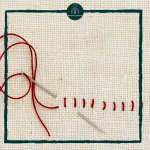
I’d never really thought about the impact scars can have on the body and mind – until I had a serious accident on my beloved mountain bike. I’d collected a few scars over the years, like most people, but they were small and unobtrusive. A couple arising from planned surgeries plus a few general misadventures. Then in November 2017, I was out on my bike riding in our local woods. My front tyre hit something hidden beneath the autumnal leaf cover and sent me veering off to the right. I went face-first into a tree at just over 25mph. Thankfully I was wearing a helmet, and frankly, it saved my life.
I don’t remember much of the next few days. I drifted in and out of consciousness, and there was a lot of pain. I mean a lot of pain, like an off-the-pain-scale level of pain.
In A&E they’d started to work through my many injuries. The main concern was what was going on with my face and head – I’d dislocated my jaw, and there were fractures to my left maxilla (the bone that forms your upper jaw near your nose), collarbone, ribs, sternum and hand. I had lots of broken teeth, a massive concussion… and then there was the reason I’m writing this.
I had a series of really nasty cuts.
The first was underneath my chin where I’d landed on a tree stump, and the others were between my bottom lip and chin. They were the shape of my front teeth, and both were what they called ‘through and through’ wounds. Traditionally the exit of a through and through wound is a lot messier than the entry point, and that was definitely the case for me. I had a set of entry and exit wounds both in my mouth and externally just below my lower lip and chin.
To put the outside of my face back together required just over 50 stitches across the wounds, and a similar amount on the inside of my mouth. The location of one of the intra-oral injuries was super challenging to repair as I’d separated my gum from my lower front teeth (even I’m wincing as I type this).
I’ve never been so scared in my life, surrounded by strangers and not able to communicate what hurts and what I needed.
It’d be fair to say recovery was intense. My face was all wonky and unbalanced due to the impact with the tree and then the ground. I sustained nerve damage, which meant my bottom lip didn’t really work, it was just a big swollen mass of scar tissue. You don’t realise how much you need a functioning bottom lip until you don’t have one. My speech was affected – there were so many words I couldn’t pronounce.
Drinking was a real challenge as I couldn’t feel where the cup/glass was in relation to my lip. Fortunately, the body is clever, and you learn to adapt really quickly. The next few months were basically spent eating soft food and nothing bigger than the size of a thumbnail as I couldn’t bite. As well as this, I had to learn how to learn again, as I’d lost my photographic memory.
Medical Professionals
My interactions with the medical professions were beyond frustrating. They were dismissive and belittling. I remember going to see my GP to try to access speech therapy and support for post-concussion syndrome to be told there was nothing that could be done. I just needed to get on with life and have another prescription for some hardcore painkillers, and I needed to break down the scar tissue in my lip by pulling it apart and the pain was good. (If you’re still reading this, please don’t ever do that. Pain is very rarely positive.)
The only exception was my dentist and his dental team, they were amazing.
Feelings – there’s a lot of them
I was really self-conscious about my scars. It felt like everyone was staring at them before they saw me as a person. As they were on my face, there was no hiding them. This really affected my confidence. I just wanted to bury myself away from the world. I didn’t look in a mirror for months, and when I finally did, I struggled to recognise the person before me.
It’s at times like this when you know who your people are, and I’d just like to say thank you to them.
I was a Senior Manager in a large UK plc. I was used to facilitating sessions, delivering training, speaking at conferences, and working collaboratively with other industry leaders to develop best practices and guidance to drive our sector forward. Big stuff in other words.
The summer before my accident I had completed an Executive MBA in Business Management. I was enjoying a few months without studying before heading on to do a Doctorate in Organisational Psychology. Being able to communicate and articulate clearly and confidently was my whole professional identity. And now I’d lost it.
Whilst I was on my phased return to work, I had the chance to take stock and think about what I really wanted from life. It was then that I realised I didn’t want to go back. I felt really lonely and isolated. I wasn’t the same person as I had been before my accident.
Six months after hitting the tree I left the job I’d previously loved.
I wanted different things from life now.
I took some time out, to have some space to heal properly without any additional pressure. I felt a calling to return to wellbeing and rehabilitation (I’d initially worked in that field after graduating).
When I was ready, I went to work with a new local company who accepted me as I was without question. It was a relief to just be me, and not to have to try to be the person that everyone remembered. Being able to talk about the strange quirks that are an integral part of the new me was actually liberating, as my then colleagues were keen to support and not judge. I also trained as a therapist – it was the first step on my journey of listening to my intuition.
The journey from there to here – recovery rocks
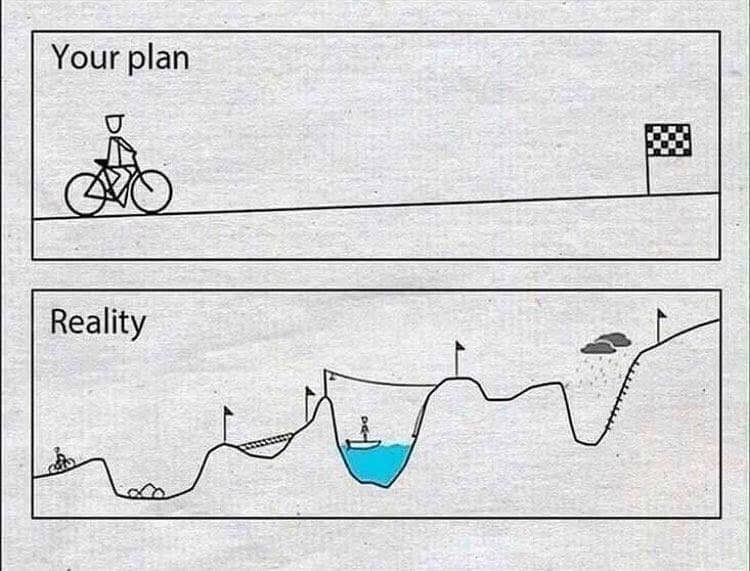
There were some really dark moments in my journey to where I am now. I’m able to look back and understand that I was fighting against what my intuition was guiding me to do. Deep down your gut knows what’s right – that’s why we have gut feelings. Taking time to listen and hear what your body is telling you is really important. Despite what people tell you recovery definitely isn’t a linear process.
Staying active was a crucial part of my recovery. Initially just walking to the end of the road was exhausting, but it got better and easier. I was so excited when the physio said I could swim. I was really keen to get back on my bike, but other injuries had something to say about that.
There is a lot of emotion tied up in any accident, normally stemming from your body not being prepared for what has happened. It takes time to be able process it, especially as in my case as I had no idea that my life would turn upside down and change forever more on that chilly November morning.
Even as a therapist myself, I needed to call upon the help of fellow therapists to facilitate different parts of my recovery. Finding the right person or people to support you is a really important part of the journey to finding yourself again. For me, this was not just physical therapy, but psychological too. It took me a few attempts to find the right people to work with, as talking therapy felt like torture and was just re-traumatising me, and traditional physio was targeting my shoulder and not helping my biggest issues, which were around cognitive processing and speech.
It can take time to feel ready to take this step, and that is ok. Reaching out can feel scary, but it’s also an empowering step to take.
Nearly 2 years after my accident I started working with a local rehabilitation specialist specifically to help me with some of the concussion-related issues I was still having. I vaguely remember our first session – finally, there was a glimmer of hope. I’d found someone who understood what was going on, how it impacted me, and who knew that my life could be different.
We very quickly got into the whole-body issues that were caused by both the visible and intra-oral scars. They had affected my ability to breathe correctly; my nervous system was in a permanent state of fight or flight; my pelvic floor and core muscles were just not working as they should (and we all know how important they are). Good breathwork is the foundation of good health. Using a blended approach of different therapies that included ScarWork, we started to rebuild me.
Everything that we did was handled carefully at a pace that my nervous system could cope with, over several sessions. Being a client receiving intra-oral scar work was scary and almost overwhelming; the only person other than me who’d touched them was my Dentist when the stitches were removed. There was a lot of emotion embedded in my scars, but space was held for me to safely release those emotions. At times it was tough work, really tough, but I’m so glad I persevered. The therapy has made a massive difference to how I speak, and also given me some movement and sensation back in my bottom lip.
As I was thinking about what to write, I was flicking through some photos, trying to find one to use (this was a challenge, as I don’t like my picture being taken, so they’re rare). I was amazed to see just how much my face has changed in this time, it’s a lot less wonky and is more balanced. My scars have healed really well – they’re barely noticeable. I have some feeling and movement in my bottom lip, even now there is still nerve re-growth going on.
I split my time between the wellness and rehabilitation clinic and working part-time with a great local employer who supports my work as a therapist.
Just in case you’re wondering, I still ride my bike – we have some fab adventures together.
The changes of my face through my own rehab journey
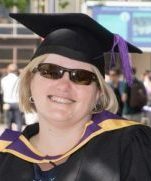
MBA Graduation – University of Portsmouth – Summer 2017
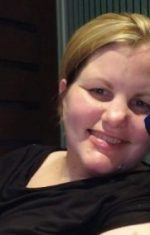
Look at the scar tissue on my bottom lip – Feb 2018
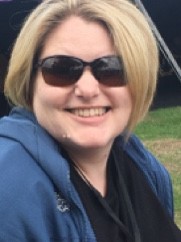
A very uneven face – Aug 2018

Wow what an amazing first blog Claire. Telling our story is so powerful. I love the visual of the plan v’s reality. So powerful. Awesome can’t wait to read the next one.
Great reading.
I would say i thought that it was only me that GP’s have done nothing for my PCS,but yet to see them admit it,they just put in my notes like other things over decades,and not told me.